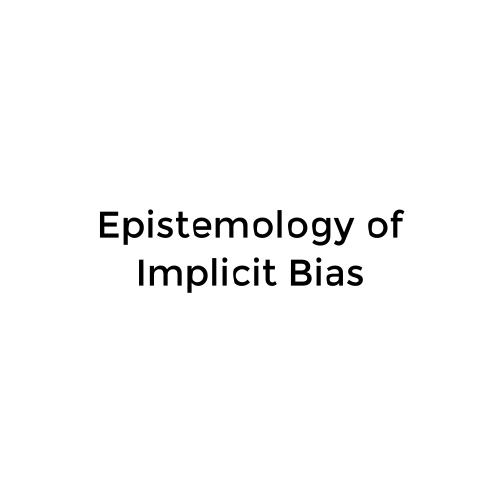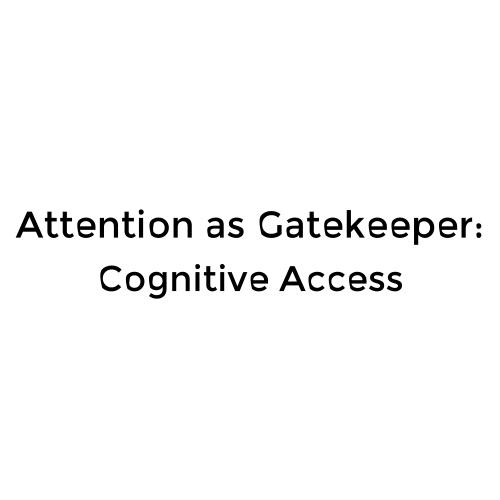Does Consciousness Overflow Attention?
Block's View
Two concepts of consciousness:
- Phenomenal consciousness: A state is p-conscious iff there is "something it is like" for the subject to be in that state.
- Access consciousness: A state is a-conscious "if it is poised for direct control of thought and action".
His thesis of OVERFLOW states that we can be p-conscious of more than we are a-conscious -- i.e., we can be phenomenally conscious of more than is accessible.
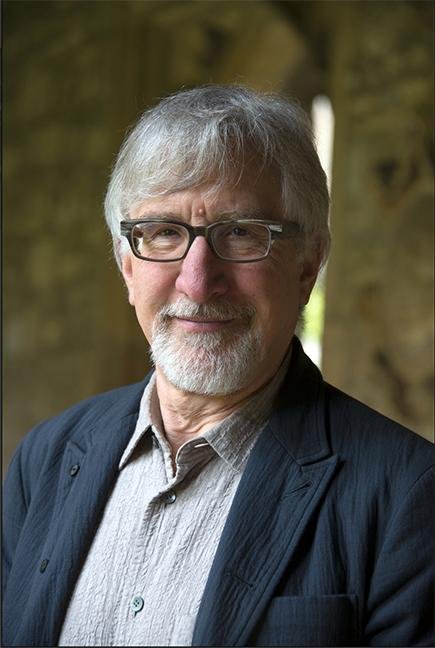
More on the Overflow thesis:
- It does not require denying that everything we are phenomenally conscious of can be accessed in order to guide verbal report and other forms of action.
- Nor is it simply the claim that we are often conscious of more than we actually report on or act in relation to.
- Rather, the idea is that in order to report on a stimulus, or otherwise act in relation to it, something more than p-consciousness is needed -- i.e., we also need to attend to it.
- Thus, the crucial claim is that we are phenomenally conscious of more than what we attend to.
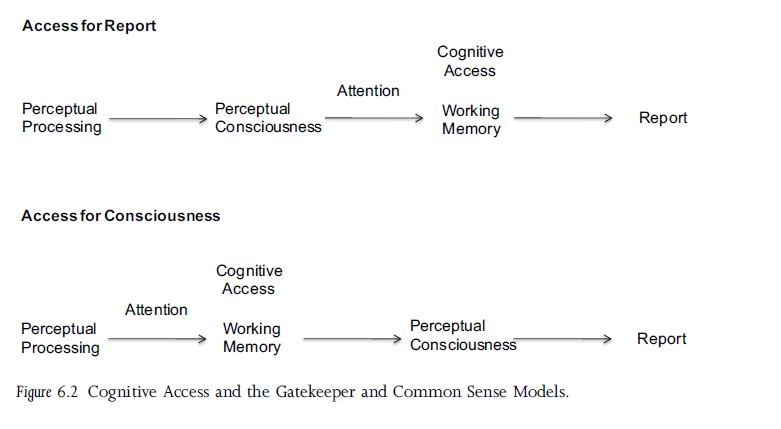
Sperling's studies
- A briefly presented stimulus, which subjects are then asked to report on.
- Previous studies had found that the capacity for report was limited.
- But subjects said that they saw more than they could report.
- To test this, Sperling added a cue, following the offset of the stimulus, telling subjects what to report on.
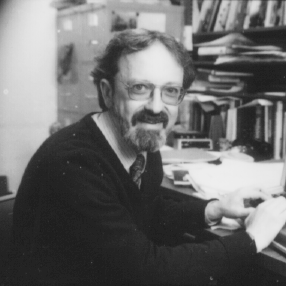
A X Y Q
3 B N 7
W Z E 8
7 U B T
P O Q S
9 Y M 4
U A V 4
R Q 3 I
Z A E 2
G H 9 U
W Z C V
2 O P M
B T 7 X
5 S M U
Q W E 4
8 U C V
T R P W
E V B 6
According to Block ...
- The fact that subjects can report on any of the items in the display, following an appropriate cue, shows that they are all present in phenomenal consciousness before attention is directed to any specific line.
- The role of attention, then, is to enable cognitive access through working memory of things we are already conscious of.
- This is in conflict with the idea of attention as a gatekeeper to consciousness.
But wait!
- Aren't subjects attending to the array in the studies in question? And isn't this necessary for them to be conscious of the stimuli?
- Perhaps, but this isn't the issue. Remember that a working assumption is that attention is a form of selection, and that it has a limited capacity -- we are limited in how much we can attend to, and in how much detail.
- So even if subjects are attending to the array as a whole, they are unable to attend at once to all the items in it, in all their specificity.
- Thus, something further is involved in attending to any individual item in order to select it for report.
However ...
- There remains the possibility that we are phenomenally conscious of the stimuli only to the degree that we attend to them.
- That is, it might be that prior to directing our attention to a specific line in the array, we are conscious of the symbols only in some "nonspecific" manner -- say, as jumbles of features, or shapes or letters of some indeterminate kind.
- The effect of attention, then, is to render more determinate what was previously conscious only in some indeterminate way.
- How would we know whether this was the case?
Postdiction
Postdiction
Does Consciousness Overflow Attention?
By schwenkler3930
Does Consciousness Overflow Attention?
- 710
